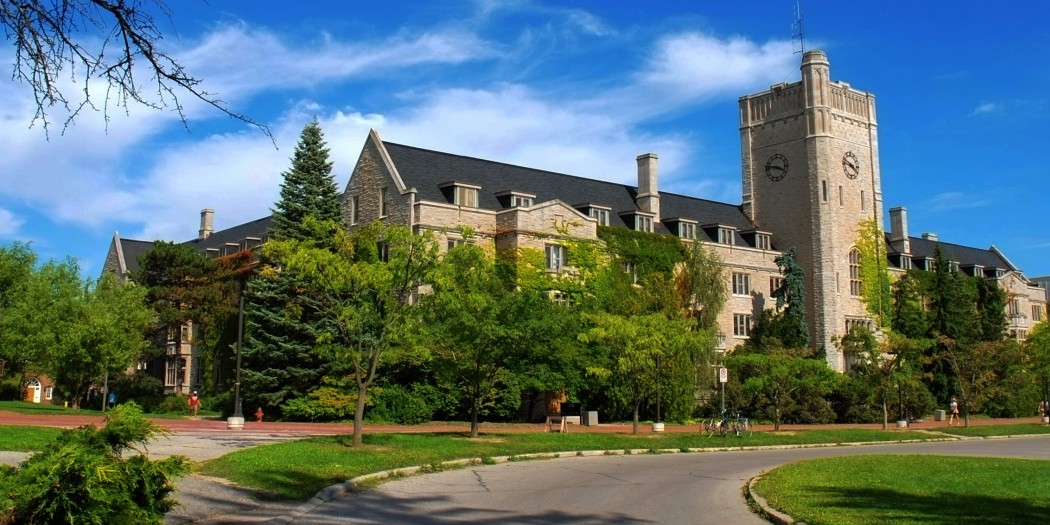MATH*6010 Analysis Unspecified [0.50]
Half the course covers metric spaces, normed linear spaces, and inner product spaces, including Banach's and Schauder's fixed point theorems, Lp spaces, Hilbert spaces and the projection theorem. The remaining content may include topics like operator theory, inverse problems, measure theory and spectral analysis.
Department(s): Department of Mathematics and Statistics
Location(s): Guelph
MATH*6011 Dynamical Systems I Unspecified [0.50]
Basic theorems on existence, uniqueness and differentiability; phase space, flows, dynamical systems; review of linear systems, Floquet theory; Hopf bifurcation; perturbation theory and structural stability; differential equations on manifolds. Applications drawn from the biological, physical, and social sciences.
Department(s): Department of Mathematics and Statistics
Location(s): Guelph
MATH*6012 Dynamical Systems II Unspecified [0.50]
The quantitative theory of dynamical systems defined by differential equations and discrete maps, including: generic properties; bifurcation theory; the center manifold theorem; nonlinear oscillations, phase locking and period doubling; the Birkhoff-Smale homoclinic theorem; strange attractors and deterministic chaos.
Department(s): Department of Mathematics and Statistics
Location(s): Guelph
MATH*6020 Scientific Computing Unspecified [0.50]
This course covers the fundamentals of algorithms and computer programming. This may include computer arithmetic, complexity, error analysis, linear and nonlinear equations, least squares, interpolation, numerical differentiation and integration, optimization, random number generators, Monte Carlo simulation; case studies will be undertaken using modern software.
Department(s): Department of Mathematics and Statistics
Location(s): Guelph
MATH*6021 Optimization I Unspecified [0.50]
A study of the basic concepts in: linear programming, convex programming, non-convex programming, geometric programming and related numerical methods.
Department(s): Department of Mathematics and Statistics
Location(s): Guelph
MATH*6022 Optimization II Unspecified [0.50]
A study of the basic concepts in: calculus of variations, optimal control theory, dynamic programming and related numerical methods.
Department(s): Department of Mathematics and Statistics
Location(s): Guelph
MATH*6031 Functional Analysis Unspecified [0.50]
Hilbert, Banach and metric spaces are covered including applications. The Baire Category theorem is covered along with its consequences such as the open mapping theorem, the principle of uniform boundedness and the closed graph theorem. The theory of linear functionals is discussed including the Hahn-Banach theorem, dual spaces, and if time permits, weak topologies or generalized functions. Basic operator theory is covered including topics such as adjoints, compact operators, the Frechet derivative and spectral theory. A brief introduction to the concepts of measure and integration required for some of the aforementioned topics is also included. Offered in conjunction with MATH*4220. Extra work is required of graduate students.
Restriction(s): Credit may be obtained for only one of MATH*4220 or MATH*6031
Department(s): Department of Mathematics and Statistics
Location(s): Guelph
MATH*6041 Partial Differential Equations I Unspecified [0.50]
Classification of partial differential equations. The Hyperbolic type, the Cauchy problem, range of influence, well- and ill-posed problems, successive approximation, the Riemann function. The elliptic type: fundamental solutions, Dirichlet and Neumann problems. The parabolic type: boundary conditions, Green's functions and separation of variables. Introduction to certain non-linear equations and transformations methods. Offered in conjunction with MATH*4270. Extra work is required for graduate students.
Restriction(s): Credit may be obtained for only one of MATH*4270 or MATH*6041
Department(s): Department of Mathematics and Statistics
Location(s): Guelph
MATH*6042 Partial Differential Equations II Unspecified [0.50]
A continuation of some of the topics of Partial Differential Equations I. Also, systems of partial differential equations, equations of mixed type and non-linear equations.
Department(s): Department of Mathematics and Statistics
Location(s): Guelph
MATH*6051 Mathematical Modelling Unspecified [0.50]
The process of phenomena and systems model development, techniques of model analysis, model verification, and interpretation of results are presented. The examples of continuous or discrete, deterministic or probabilistic models may include differential equations, difference equations, cellular automata, agent based models, network models, stochastic processes.
Department(s): Department of Mathematics and Statistics
Location(s): Guelph
MATH*6071 Biomathematics Unspecified [0.50]
The application of mathematics to model and analyze biological systems. Specific models to illustrate the different mathematical approaches employed when considering different levels of biological function.
Department(s): Department of Mathematics and Statistics
Location(s): Guelph
MATH*6091 Topics in Analysis Unspecified [0.50]
Selected topics from topology, real analysis, complex analysis, and functional analysis.
Department(s): Department of Mathematics and Statistics
Location(s): Guelph
MATH*6181 Topics in Applied Mathematics I Unspecified [0.50]
This course provides graduate students, either individually or in groups, with the opportunity to pursue topics in applied mathematics under the guidance of graduate faculty. Course topics will normally be advertised by faculty in the semester prior to their offering. Courses may be offered in any of lecture, reading/seminar, or individual project formats.
Department(s): Department of Mathematics and Statistics
Location(s): Guelph
MATH*6182 Topics in Applied Mathematics II Unspecified [0.50]
This course provides graduate students, either individually or in groups, with the opportunity to pursue topics in applied mathematics under the guidance of graduate faculty. Course topics will normally be advertised by faculty in the semester prior to their offering. Courses may be offered in any of lecture, reading/seminar, or individual project formats.
Department(s): Department of Mathematics and Statistics
Location(s): Guelph
MATH*6400 Numerical Analysis I Unspecified [0.50]
Topics selected from numerical problems in: matrix operations, interpolation, approximation theory, quadrature, ordinary differential equations, partial differential equations, integral equations, nonlinear algebraic and transcendental equations.
Department(s): Department of Mathematics and Statistics
Location(s): Guelph
MATH*6410 Numerical Analysis II Unspecified [0.50]
One or more topics selected from those discussed in Numerical Analysis I, but in greater depth.
Department(s): Department of Mathematics and Statistics
Location(s): Guelph
MATH*6998 MSc Project in Mathematics Unspecified [1.00]
This course is intended for students in the course-based MSc program in Mathematics. The MSc project will be written under the supervision of a faculty member and will normally be completed within one or two semesters. Once completed, students will submit a final copy of their project to the Department and give an oral presentation of their work.
Restriction(s): Restricted to MSC.MAST:L-MATH students.
Department(s): Department of Mathematics and Statistics
Location(s): Guelph
STAT*6550 Computational Statistics Unspecified [0.50]
This course covers the implementation of a variety of computational statistics techniques. These include random number generation, Monte Carlo methods, non-parametric techniques, Markov chain Monte Carlo methods, and the EM algorithm. A significant component of this course is the implementation of techniques.
Department(s): Department of Mathematics and Statistics
Location(s): Guelph
STAT*6700 Stochastic Processes Unspecified [0.50]
The content of this course is to introduce Brownian motion leading to the development of stochastic integrals thus providing a stochastic calculus. The content of this course will be delivered using concepts from measure theory and so familiarity with measures, measurable spaces, etc., will be assumed.
Department(s): Department of Mathematics and Statistics
Location(s): Guelph
STAT*6721 Stochastic Modelling Unspecified [0.50]
Topics include the Poisson process, renewal theory, Markov chains, Martingales, random walks, Brownian motion and other Markov processes. Methods will be applied to a variety of subject matter areas.
Department(s): Department of Mathematics and Statistics
Location(s): Guelph
STAT*6761 Survival Analysis Unspecified [0.50]
Kaplan-Meier estimation, life-table methods, the analysis of censored data, survival and hazard functions, a comparison of parametric and semi-parametric methods, longitudinal data analysis.
Department(s): Department of Mathematics and Statistics
Location(s): Guelph
STAT*6801 Statistical Learning Unspecified [0.50]
Topics include: nonparametric and semiparametric regression; kernel methods; regression splines; local polynomial models; generalized additive models; classification and regression trees; neural networks. This course deals with both the methodology and its application with appropriate software. Areas of application include biology, economics, engineering and medicine.
Department(s): Department of Mathematics and Statistics
Location(s): Guelph
STAT*6802 Generalized Linear Models and Extensions Unspecified [0.50]
Topics include: generalized linear models; generalized linear mixed models; joint modelling of mean and dispersion; generalized estimating equations; modelling longitudinal categorical data; modelling clustered data. This course will focus both on theory and implementation using relevant statistical software. Offered in conjunction with STAT*4050/4060. Extra work is required for graduate students.
Restriction(s): Credit may be obtained for only one of STAT*4050 or STAT*4060 or STAT*6802
Department(s): Department of Mathematics and Statistics
Location(s): Guelph
STAT*6821 Multivariate Analysis Unspecified [0.50]
This is an advanced course in multivariate analysis and one of the primary emphases will be on the derivation of some of the fundamental classical results of multivariate analysis. In addition, topics that are more current to the field will also be discussed such as: multivariate adaptive regression splines; projection pursuit regression; and wavelets. Offered in conjunction with STAT*4350. Extra work is required for graduate students.
Restriction(s): Credit may be obtained for only one of STAT*4350 or STAT*6821
Department(s): Department of Mathematics and Statistics
Location(s): Guelph
STAT*6841 Computational Statistical Inference Unspecified [0.50]
This course covers Bayesian and likelihood methods, large sample theory, nuisance parameters, profile, conditional and marginal likelihoods, EM algorithms and other optimization methods, estimating functions, Monte Carlo methods for exploring posterior distributions and likelihoods, data augmentation, importance sampling and MCMC methods.
Department(s): Department of Mathematics and Statistics
Location(s): Guelph
STAT*6860 Linear Statistical Models Unspecified [0.50]
Generalized inverses of matrices; distribution of quadratic and linear forms; regression or full rank model; models not of full rank; hypothesis testing and estimation for full and non-full rank cases; estimability and testability; reduction sums of squares; balanced and unbalanced data; mixed models; components of variance.
Department(s): Department of Mathematics and Statistics
Location(s): Guelph
STAT*6920 Topics in Statistics Unspecified [0.50]
Department(s): Department of Mathematics and Statistics
Location(s): Guelph
STAT*6950 Statistical Methods for the Life Sciences Fall Only [0.50]
Analysis of variance, completely randomized, randomized complete block and latin square designs; planned and unplanned treatment comparisons; random and fixed effects; factorial treatment arrangements; simple and multiple linear regression; analysis of covariance with emphasis on the life sciences. STAT*6950 is intended for graduate students of other departments and may not normally be taken for credit by mathematics and statistics graduate students.
Department(s): Department of Mathematics and Statistics
Location(s): Guelph
STAT*6998 MSc Project in Statistics Unspecified [1.00]
This course is intended for students in the course-based MSc program in Statistics. The MSc project will be written under the supervision of a faculty member and will normally be completed within one or two semesters. Once completed, students will submit a final copy of their project to the Department and give an oral presentation of their work
Restriction(s): Restricted to MSC.MAST:L-STAT students.
Department(s): Department of Mathematics and Statistics
Location(s): Guelph
Show less 

